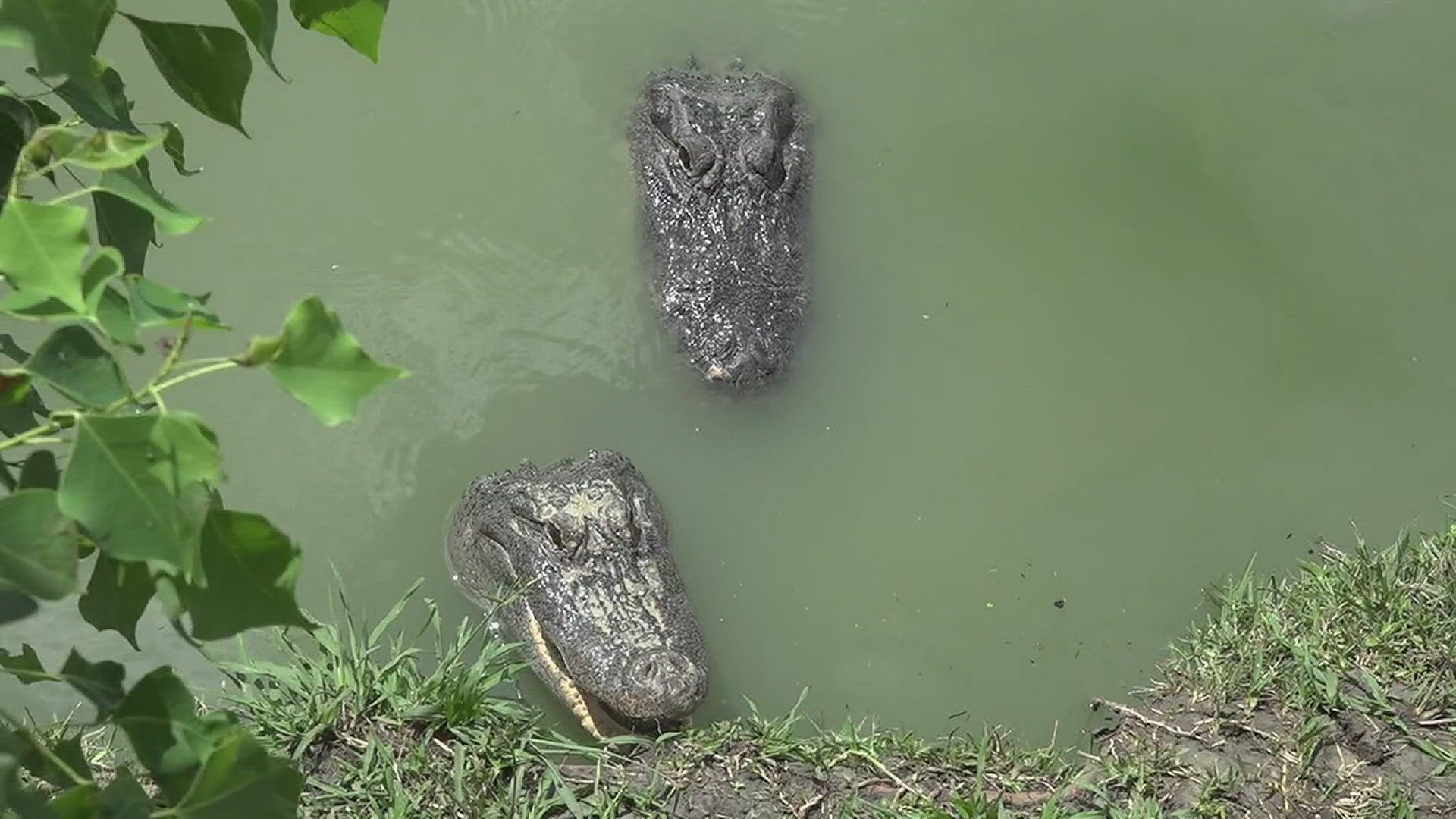BEAUMONT, Texas — Gary Saurage and his crew at Gator Country are working in the summer heat to find gator eggs and move them to a safe place until they hatch.
Mother gators can lay between 30 to 35 eggs a year and the gator crews have to find them, without the mom noticing, which is a dangerous process.
Saurage and his crew will be attempting to find the eggs over the next couple of days from two nests.
They went on defense Friday morning as they tried to get eggs right under the "mama gator's" nose.
"If we used a shovel, or something, it might break the eggs," said Gator Country intern Max brown.
The team was able to hear one gator hissing as they were digging.
"That's the one hissing at us," said one team member.
The mother gator was within striking distance.
"Gathering eggs out here in the park is one of the most dangerous things we do," said the owner of Gator Country, Gary Saurage. "You can see this mama alligator over here, she's not having anything to do with this."
The team uses wooden shields and poles to keep the angry gators at bay. Communication between the "diggers" and "defenders" is key to avoiding injuries.
"That mama alligator is bringing it, she's hissing at them and running to 'em [them]," said Saurage. "So it's a dangerous process."
In the first nest, the team made an unfortunate discovery.
"It all depends on how that ground is and can that mamma alligator dig it deep enough," said Saurage. "She just didn't dig deep enough. She laid her eggs and she laid on them and it crushed that nest of eggs."
The second nest yielded a better result.
"It's like Christmas here at gator country! We found eggs," said Saurage.
Saurage says while three eggs may seem like a small number, it's the gator's diet in captivity that determines the number of eggs.
"Out in the wild it'd be between 30 and 35 eggs with about 85% hatch rate. Out in the wild they eat birds, fish, turtles and snakes," he said. "Here, Gator Country, they eat hogs and chicken and things like that. So it does change the fertility rates quite a bit."
The process is crucial to keeping the baby gators safe.
"The big alligators are going to eat the baby alligators," he said.
Gator Country Charles Holder says their work isn't done yet.
"We have five more that we have located," said Holder. "We're going to rob those on another day though!"
Saurage says the eggs will be moved to Anahuac where they will be placed in special incubators until they hatch in about two months.
This is a developing story. We will update with more if and when we receive more confirmed information.
GET NEWS & WEATHER ALERTS | Download the 12News App to your mobile device

